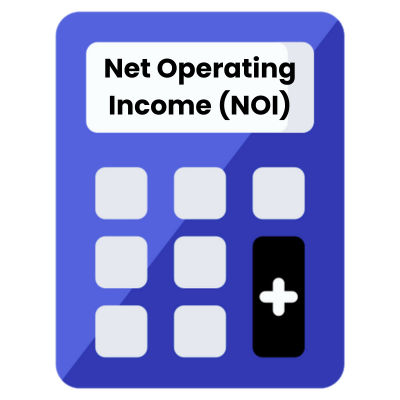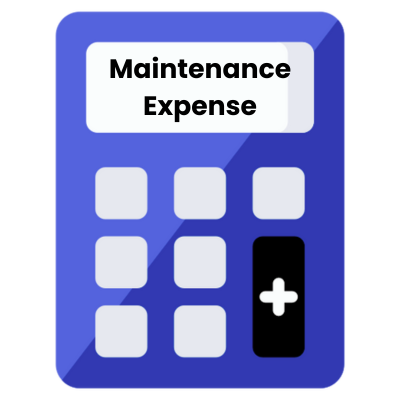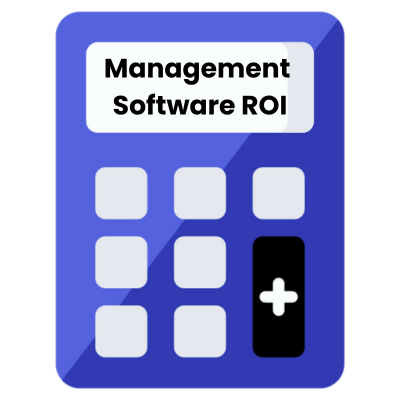Last Updated: April 2024

Parking rental property investing involves the acquisition and management of properties specifically designed for vehicle parking, such as surface lots and parking garages. With urban areas growing and the demand for parking spaces increasing, this type of investing can provide steady income, low maintenance, and a relatively high degree of autonomy.
What is Parking Property Investing?
Parking Property Investing Definition
Parking property investing refers to the process of purchasing, managing, and capitalizing on spaces explicitly designated for vehicle storage, such as parking lots and parking garages. It involves generating revenue through short or long-term vehicle storage fees, advertisements, or potential property appreciation.
Parking Property Investing Explained
Parking property investing revolves around buying spaces where vehicles can be parked, be it open lots or multi-level garages. Investors typically earn returns through charging hourly, daily, or monthly parking fees to users. Strategically located properties, especially near business districts or attractions, can yield high demand and profitability. Over time, these assets may also appreciate in value, especially if surrounding developments increase the demand for parking.
9 Ways to Invest in Parking Properties
Direct Ownership Parking Properties
Acquiring direct ownership of a parking lot or garage allows an investor to have full control over the property, managing operations, and revenue collection personally. This hands-on approach provides direct returns from daily operations but also requires active management and a significant initial outlay.
Developing a Parking Property
Investing in the development of a new parking lot or garage entails transforming a raw piece of land or redeveloping an existing property into a functional parking facility. This approach offers the potential for substantial returns, especially in high-demand areas, but involves developmental risks and regulatory challenges.
Convertible Use Parking Properties
Investing in adaptable parking structures designed for easy conversion to other uses (e.g., residential or commercial) in the future is a hedge against changing urban transport dynamics. While functioning as parking today, these assets have the flexibility to adapt to future market demands, ensuring long-term investment viability.
Parking Property Partnership or Joint Ventures
Forming partnerships or joint ventures allows multiple investors to pool resources to buy or manage a parking facility. By sharing costs and responsibilities, investors can reduce individual risks while capitalizing on the combined expertise, but they also share the profits.
Parking Companies








Several large parking rental companies have redefined the dynamics of this asset class. Their size and influence not only shape market trends but also impact rental standards and practices nationwide. Investing in them, where possible, can be a great way to gain exposure to this asset class.
Parking Revenue Share Agreements
Through a revenue share agreement, an investor can collaborate with a parking operator to operate or enhance a parking facility, subsequently sharing the revenues generated. This model allows one to invest expertise and/or capital without full ownership, creating a win-win for both parties with improved facilities and shared revenues.
Parking Property Pop-up or Event Uses
Renting out parking facilities for temporary events or pop-up markets during off-peak times can generate additional income. This strategy can be especially effective for commercial retail properties with large parking lots. maximizes the utility of the space, catering to different needs at different times, thereby optimizing revenue potential.
Parking Property Syndications
A syndication pools funds from multiple investors to buy and manage large parking properties. Each investor gets a share of the profits relative to their investment, while benefiting from the scale of larger operations and the expertise of professional management.
Parking Properties Real Estate Stocks
Investing in real estate stocks focused on parking properties allows investors to tap into the profitability of parking assets without directly managing. It offers a way to diversify an investment portfolio, benefit from dividends, and enjoy capital appreciation.
How to Buy a Parking Property
Buying parking properties, such as surface lots and garages, offers a unique avenue of ownership within the rental real estate sector. Understanding the process from acquisition to management and potential exit, is crucial for maximizing returns.
Parking Property Purchase Process
- Self Assessment & Investment Objectives: Begin by understanding your financial capabilities, risk tolerance, understanding of rental real estate finance, and long-term investment goals to ensure a parking property aligns with your objectives.
- Assembling a Real Estate Team: Build a team of experienced real estate professionals, from commercial brokers to lawyers, who are familiar with parking property transactions to help guide your purchase.
- Market and Location Analysis: Research areas with high parking demand, considering factors like foot traffic, nearby establishments, and local transportation hubs. Specialized real estate data research software can help with this.
- Key Features to Look for in Potential Parking Properties: Prioritize properties with strong customer demand, good accessibility, security measures, and potential for technological integrations.
- Evaluating Financing Options for Acquiring Properties: Explore various financing avenues, from commercial financing options, to investor partnerships, determining the most best overall choice.
- Making Offers and Negotiating Purchase Terms: Craft a competitive offer based on market values and negotiate terms to ensure profitability and protect your interests. It is usually best to use a commercial broker for this step.
- Due Diligence: This typically includes – Zoning, Surveys, and Environmental Assessments. Be sure to confirm the land’s zoning permits parking operations and conduct necessary surveys and environmental checks.
- Closing on the Property Purchase: Finalize documentation, make necessary payments, and officially acquire ownership of the parking property.
Managing and Marketing Parking Rental Properties
- Operational Management: Equip the facility with efficient payment systems, ensure robust security measures, and maintain its infrastructure to offer top-notch service.
- Marketing the Parking Facility: Leverage digital platforms, signage, and partnerships to boost visibility and attract regular patrons.
- Setting Pricing and Payment Systems: Implement dynamic pricing models and integrate user-friendly payment systems to optimize revenue.
- Delivering Excellent Customer Service: Foster trust and loyalty by addressing customer concerns promptly and ensuring a hassle-free parking experience.
Parking Property Financial Management and Analysis
- Understanding Revenue, Operating Expenses, and Cash Flow: Regularly analyze income sources against expenses to maintain positive cash flow.
- Calculating Return on Investment: Determine your property’s ROI by evaluating net profits against the initial and ongoing investments. Online rental property calculators can help with this step.
- Tax Considerations and Benefits: Stay updated on regulations and changing tax rates, capitalizing on potential deductions and benefits specific to parking properties.
Scaling and Diversification in Parking Property Investing
- Strategies for Growing Your Investment Portfolio: Seek out new market opportunities, whether in emerging commercial hubs or in cities with increasing vehicular traffic.
- Diversifying Your Portfolio with Different Types of Parking Facilities: Invest in a mix of open lots, multi-tier garages, and hybrid facilities to spread risks and tap diverse customer bases.
- Exit Strategies: Continually re-evaluate market dynamics, knowing when to sell, reinvent, or upgrade your properties to maximize returns.
Top Parking Property Investing Tools
The #1 Rental Property Newsletter
Once a month, we send out an exclusive Rental Property Market Update with top stories, current mortgage rates, building products, and more. No spam and unsubscribe anytime.


Parking Property Investing Calculators
Pros and Cons of Investing in Parking Properties
There are many factors to consider when evaluating rental property investments, specifically parking properties. The following list compares the key pros and cons you need to know before investing in parking properties.
Pros of Parking Lot Investing
- Steady Rental Income Stream – Few things are as comforting as the steady cash flow derived from residential and commercial rental properties, including parking lots. Owners and investors can count on a relatively stable monthly income, which they can put away for a rainy day or leverage to acquire more properties in their investment portfolio.
- Value Appreciation Over Time – In addition to steady cash flow, the value of a parking property itself can rise with time, particularly during periods of high inflation. The real value of the land remains the same while our currency, the dollar, depreciates. This can provide substantial protection from the pernicious effect of inflation on your savings.
- Ease of Management and Maintenance –Managing and maintaining a rental property can be a handful. You’ve got to find tenants, deal with leases, and constantly maintain the property. Parking lots are decidedly easier to manage, with minimal marketing, staff, and maintenance expenses compared to most other types of leased real estate.
Cons of Parking Lot Investing
- Greater Sensitivity to Market Shocks –While many forms of rental real estate offer countercyclical resistance to recessionary pressures, parking properties can rise and fall with the highs and lows of the economy. We saw this first hand during the COVID-19 pandemic, where traffic in dense urban cores came to a standstill, negatively affecting many parking lot owners- and other foot and car-traffic-based businesses.
- Require Significant Upfront Capital – Parking properties are not cheap, particularly in high-traffic areas. Not only are they valued as an income generating asset, but also for the land’s development potential. As an investor, you’ll need deep pockets or rental property financing access to acquire a substantial asset.
- Parking properties may have issues with crime. Crime is a fact of life, particularly in the cities where parking lots generate the most income and benefit from the highest appreciation value. Unfortunately, many parking lots see heightened levels of crime of all kinds, from car break-ins to driving offenses. This can be mediated or remedied with sufficient rental property owner legal protection and security.
Search Rental Real Estate
Try searching out site for hundreds of rental property topics ranging from property management, investor tool reviews, investment research, and more.
Parking Properties vs Other Rental Real Estate Asset Classes
Parking properties are a unique investment niche in the rental real estate sector. When comparing parking properties to other popular real estate investments, it’s essential to evaluate specific criteria to determine the best fit for one’s portfolio.
| Criteria | Parking Properties | Commercial Real Estate | Land | Self Storage |
|---|---|---|---|---|
| Scale of Investment | Typically moderate to high | High, varies by location | Low to high | Low to high (depending on facility type) |
| Management Intensity | Moderate (daily operations) | Varies (tenant management) | Low (no tenants) | Moderate (tenant access) |
| Liquidity | Moderate | Moderate to low | Low | Moderate |
| Risk Profile | Moderate (demand driven) | Moderate to high | Low (long-term hold) | Moderate (demand driven) |
| Potential ROI | Moderate to high (location dependent) | Varies Widely | Low (until developed) | Moderate to high |
| Tenant Duration | Short term (hourly to monthly) | Varies (long-term leases) | N/A | Short to medium term |
| Market Sensitivity | Moderate (urban dependence) | High (economic conditions) | Moderate (development potential) | Moderate (local demand) |
More Real Estate Investing Asset Types
About the Author


Ryan Nelson
I’m an investor, real estate developer, and property manager with hands-on experience in all types of real estate from single family homes up to hundreds of thousands of square feet of commercial real estate. RentalRealEstate is my mission to create the ultimate real estate investor platform for expert resources, reviews and tools. Learn more about my story.
Disclaimer: The information provided on this website does not, and is not intended to, constitute legal and/or financial advice. As such, all information, content, and materials available on this site are for general informational purposes only. Please review our Editorial Standards for more info.
















